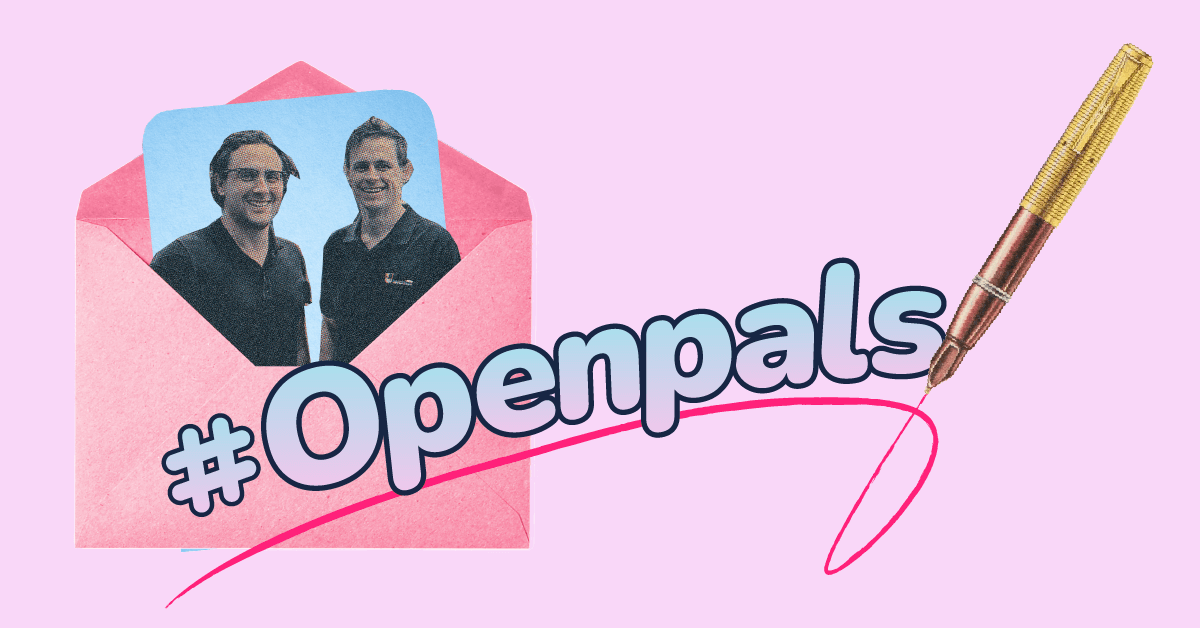Openpals: Pearler – Investing without FOMO

In this series we’re talking to our clients to get their personal take on what they’re up to, where the industry’s going and things they’ve found along the way. We ask founders of Pearler, Nick Nicolaides and Hayden Smith about their social wealth investment platform and the problems it solves.
Tell us a little bit about Pearler and some of the recent developments you've introduced.
(Nick:) Pearler is a social wealth platform that launched in March 2021 with a fairly simple idea:, to cater to the community of passive investors out there currently using typical trading platforms, not built for them. We use design to reduce market noise, FOMO, short term behaviour, almost making investing boring.
Since launching our share investing product with Autoinvest and the ability to learn from other passive ETF investors, we’ve invested heavily in the overall wealth experience. Developments have included a comprehensive wealth dashboard that can link bank accounts, super, other assets; long term goal visualisation and tracking; instant payments; minor and trust accounts; and US shares, with more to come.
What do you think will happen in the industry over the next few years? What big trends or changes do you foresee?
(Nick:) Innovators like us continue to unbundle the big-bank product set and with the growth of DIY wealth management we will see more segmentation of the market. The impact will be that a customer will have multiple best of breed apps for the multiple parts of their investible wallet. The challenge for old and new players is to clearly define why they exist, what value they bring and to what niche, however large that niche may be. Instead of aiming to own the entire wallet, we want to own the infrastructure that connects them for the customer.
What keeps you up at night? What do you worry about in the industry?
(Nick:) Capital allocation from the incumbents, funding losses in the short and medium term with the aim of suffocating the competition. This capital would be better spent on actually improving the customer experience, but it’s easier to give your product away for free. This will lead to worse outcomes for the customer over the long term.
Why did you choose Openmarkets? What do you like about its people and its tools (not the same thing)?
(Hayden:) We chose Openmarkets originally because in the space of share market brokers it was very challenging to find young, API-driven companies that were focused on using technology to solve problems. We’ve always found that the people we’ve worked with at Openmarkets are motivated to push through and solve problems with us as they come up. Every time we’ve needed to add new capabilities or functionality to our systems using tools from Openmarkets, their team has been willing and motivated to help make it happen.
What are you most proud of at Pearler?
(Hayden:) We’re most proud that the message we’ve been pushing of long-term passive investing made easy has really resonated with our customers and broader community. We’re proud to always be getting feedback that Pearler fills a gap in public equity exposure without any of the day trading tools. We’re also excited to see that more than 50% of our onboarded customers identify as women, which ties into a goal we’ve had from day 1, which is to make investing far more accessible to anyone working hard, that just want to get ahead in life.
Tell us an unexpected fact about yourself.
(Hayden:) In my university years I used to swear to my friends that I would never go anywhere near share trading. At the time I didn’t have a strong enough understanding of the diversity in which people make trades to distinguish between long term buy-and-hold passive investors, and the kind of day trading you see in your standard Wall Street movie. As I came to learn more about this idea of regular investing into product assets that isn’t focused on making trade margins, being part of the Pearler story was a no-brainer. A handful of friends who still think of shares and Wall Street as the same thing still like to mock me to this very day!
What few words of advice would you give your 25-year-old self if you were starting in the industry now?
I think one thing that we’ve learned that we wish we knew a few years ago relates to building a FinTech consumer product. There are a lot of rules of thumb around product building that tend to focus on speed and experimentation. However, we learned very early on that the tolerance for failure and threshold for trust in finance is much higher – so whilst you still need to innovate and experiment, the balance of having momentum and maintaining a level of trust is skewed differently in FinTech from what we can see.
Please note, this blog is a guest interview and views expressed are those of the interviewee and not Openmarkets.
Hold on a sec! You should consider whether any advice on our website is right for you or your clients. We don’t accept any responsibility for the accuracy any information, opinions, or predictions we’ve provided, and we obviously haven’t taken you or your clients’ personal financial situation into account. Just a heads-up.
